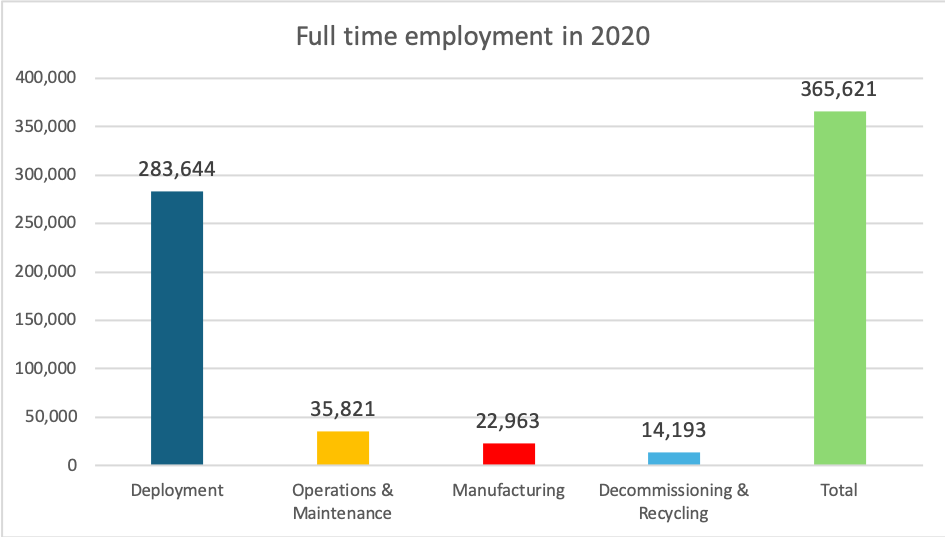By 2025, the solar sector in the EU could employ 584,000 people, representing a 64% increase compared to 2020, as shown in the EU Solar Jobs Report 2021 published by
The SolarPower Europe, of which the Association of Renewable Energy Sources Serbia is a member. This report provides valuable insights into the expansion of the solar sector and its impact on the economy and labor market in the European Union.
In 2020, the solar sector in the EU employed 357,000 people. Of these, 42% or 150,000 jobs were directly related to the solar industry, while the remaining 207,000 jobs were indirectly related to the solar industry. The majority of jobs, 80%, were related to solar system installation activities. Maintenance jobs accounted for 10% of the total employment, while manufacturing comprised 6%, and recycling and decommissioning accounted for 4%.
In terms of production, the sector recorded 23,000 jobs. Inverter production provided nearly half of this number, with around 11,000 direct and indirect jobs. Polysilicon and module production provided 29% and 22% of total manufacturing jobs. Due to a lack of capacity for the production of crystalline panels and cells in the EU, only a small number of jobs, less than 1,000, were filled whitin this production activity.

Forecasts for employment growth in the solar sector indicate a significant increase in the coming years. According to the medium-term scenario, employment is expected to reach 584,000 jobs by 2025, representing a 64% increase compared to 2020. Additionally, achieving the goals of the Solar Energy Initiative by 2025 could result in the creation of 74,000 jobs in manufacturing. Further work on achieving the goals for Renewable Energy Sources till 2030 could also significantly contribute to employment growth, with the potential for a threefold increase in the number of jobs in the solar sector by 2030.
These data emphasize the crucial role of the solar sector in achieving the EU’s energy goals and highlight the significant economic and employment potential of this sector in the European Union.
Foto: Pixabay/Tung Lam


